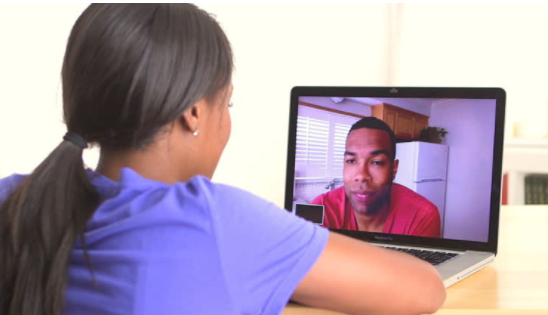Online dating fraud is a global issue, and now we have new data to back it up. A new study by the University of Bristol, titled, The Geography of Online Dating Fraud, has dug into over 5,000 fake dating profiles, breaking down where these scams come from, who they target, and how they operate.
Let’s dive in because this affects anyone looking for love — or pretending to — in the digital world.
The headlines: Nigeria leads the pack, with over 30% of fraudulent dating profiles traced back there. Add Ghana, South Africa, and the broader West African region, and they account for over 50% of the scams. Other hotspots include Malaysia, the UK, and even the US.
Why it matters: These scammers don’t just hang around your neighbourhood. They target Western countries like the US and UK by pretending to live there. Over 63% of the fake profiles claim to be American, with 11% aiming for Brits. This tactic builds trust and makes them seem relatable.
What’s in their playbook? Fraudsters keep it efficient. They recycle profile pictures and descriptions to churn out fake accounts quickly. West African scammers, in particular, share resources, forming networks that amplify their efforts. One common trick? Posing as “lonely U.S. military personnel” stationed overseas — a classic way to tug at heartstrings (and wallets).
Who are these fake profiles? It depends on the region. In West Africa, most fake accounts portray men in respectable jobs,
like engineers or military officers. Meanwhile, profiles from Russia and Ukraine often feature women with professional or academic personas.
In the Philippines, it’s all about mixed-race characters in sales roles. And don’t miss this detail: scammers carefully craft statuses like “widowed” to milk sympathy from their targets.
Why is it hard to catch them? Many fraudsters use proxies to hide their real locations, making it tricky to track them down. However, researchers were able to uncover the real origins of about 11% of these masked accounts through clever text and image analysis.
What should we do about it? This is a global problem, and tackling it requires global teamwork. The study calls for stronger fraud prevention efforts in hotspots like Nigeria and Malaysia and better cross-border collaboration. Western countries, too, need to step up — not just looking abroad but tackling scams happening at home.
If you’re online dating, stay sharp. Those sweet-talking strangers might just be scammers with a playbook that’s getting smarter every day.
With the holidays just two weeks away, you’re probably brainstorming ways to gift yourself and your loved ones something special. Here’s a wild idea: why not create your own cryptocurrency? Thanks to Bolu’s insights, it might just be the money-making move you need.
Well, creating your own crypto sounds like an exciting (and potentially lucrative) venture, doesn’t it? The difficulty, however, depends on what kind of cryptocurrency you’re after and what you intend to use it for. According to Bolu, it can be as simple as setting up a Facebook account — or as mind-bending as understanding quantum physics. Yep, that’s the range.
If you’re thinking of creating a meme token or you’re a celebrity looking to connect with fans (or, let’s be honest, cash in on the hype), it’s a relatively straightforward process. Tools and platforms exist that simplify token creation, making it accessible to almost anyone.
The tricky part, though, lies in navigating the legal side of things. With the ease of creating crypto tokens comes the challenge of ensuring they comply with regulations, which can vary wildly depending on where you are. That’s where things can get messy, and why regulators are constantly tightening the rules.
So, what’s the verdict? Is creating your own crypto the holiday side hustle you’ve been searching for? Or will you stick to more tried-and-true money-making schemes? Either way, Bolu’s got the full breakdown to help you decide. Go check it out here.
TapTap Send resumes in Ghana after a month suspension
A picture of a man sitting in a restaurant holding is phone.
Image by Freepik
Talk of the town is that Taptap Send is back in action in Ghana! This means that the remittance platform has resumed its services, reconnecting Ghanaians abroad to their loved ones back home.
In case you missed it, the Bank of Ghana (BoG) suspended Taptap Send on November 8, 2024, for operating a cedi-denominated remittance wallet without the proper licences.
This breach violated the Foreign Exchange Act of 2006, which requires businesses dealing in foreign exchange to be fully licensed. They also fell short of BoG’s updated guidelines for remittance services, including timely settlements and strict anti-money laundering (AML) and counter-financing of terrorism (CFT) requirements.
Now, with the suspension lifted, Taptap Send is back to offering its services, allowing Ghanaians in the UK, Europe, the USA, Canada, and the UAE to send money home. This move is a relief for customers who rely on the platform for its affordability and ease of use.The resumption isn’t just good news for Taptap; it’s a win for Ghanaians needing seamless and reliable money transfer services. Let’s hope the company keeps things compliant moving forward!












+ There are no comments
Add yours